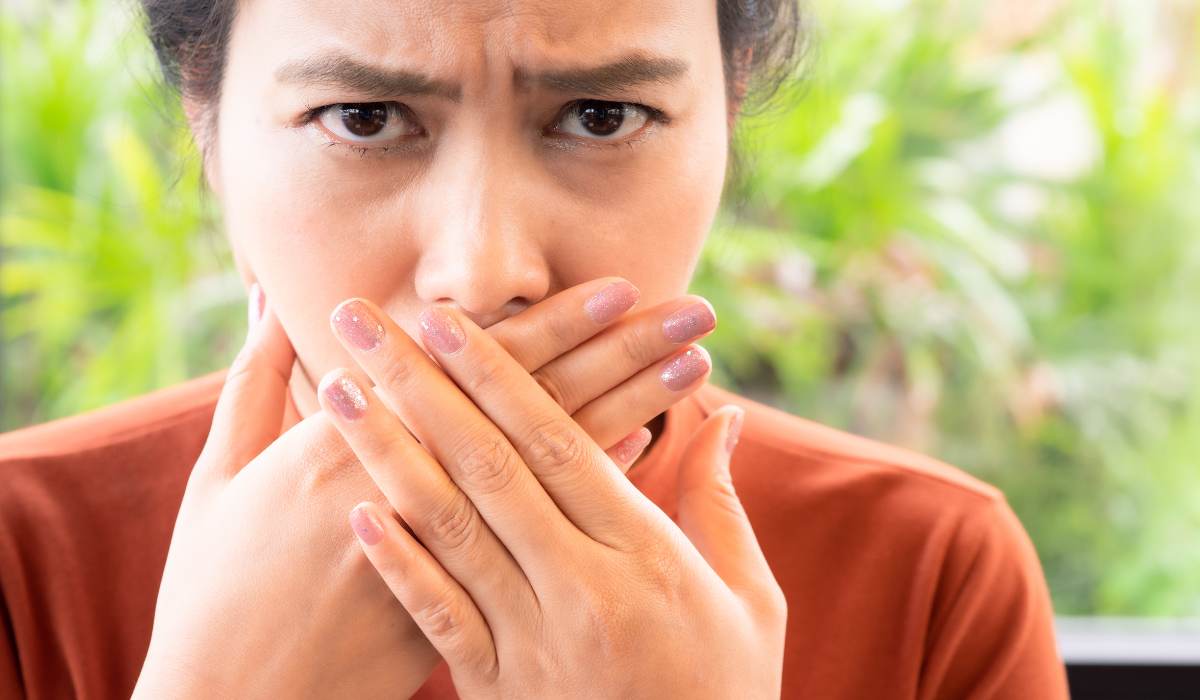Fix Your Breath Without Gum or Mints: These 10 Herbs Work Wonders
We’ve all been there.
You catch a whiff of your own breath and think—was that me?
Maybe it’s after coffee, a rushed lunch, or just one of those days when nothing feels fresh. And while mints and mouthwash are the usual go-tos, they don’t always fix the problem. Sometimes they even make it worse.
If you’ve been looking for a better way to stay fresh, you’re not alone. More and more people are turning to simple, natural herbs that actually help with the cause of bad breath—not just cover it up.
In this guide, we’ll go through ten everyday herbs that have been used for centuries to help with breath. You’ll find out how they work, how to take them, and how long their fresh effect lasts.
You might already have a few in your kitchen.
Let’s start with a quick look at what’s really behind bad breath—and why it’s not something to feel bad about.
First, about about bad breath (without shame)
Bad breath can feel embarrassing, but the truth is, it happens to almost everyone.
It doesn’t mean you’re dirty. It doesn’t mean you’re doing anything wrong. And it definitely doesn’t mean there’s something wrong with you.
Often, it’s just your body doing its thing: digesting food, clearing out bacteria, reacting to stress or dehydration.
Sometimes it’s caused by medication. Sometimes by not eating enough. Sometimes it just shows up out of nowhere.
But because it’s such a personal thing, many people keep quiet about it. Some even avoid talking too closely, laughing freely, or getting close to others (just in case…).
If that sounds familiar, you’re not alone. And you’re not being silly for caring.
The good news? There are simple, natural ways to support your body and help your breath feel fresher again.
That’s what this guide is all about.
Let’s take a look at what might be causing the problem in the first place.
What actually causes bad breath?
Bad breath, or halitosis, usually comes down to a few common things. And no, it’s not always about brushing or flossing. In fact, sometimes it has very little to do with your teeth at all.
Most of the time, it’s caused by bacteria in the mouth. These bacteria break down food particles and release gases that don’t smell great, especially if the mouth is dry.
Dry mouth is a big one. It can happen when you sleep, when you’re dehydrated, if you’re stressed, or if you take certain medications. Less saliva means bacteria get to hang around longer.
Other common causes include acid reflux, gum problems, poor digestion, sinus issues, or simply going too long without eating. Foods like garlic, onions, or coffee can also leave a strong trace behind.
So if you’ve been wondering why your breath doesn’t feel fresh even when you’re doing all the right things, this might be why.
Understanding the cause can help you figure out what works best for you.
Here’s a quick list so you can easily see what might be causing it:
- Bacteria in the mouth – especially when they break down food or protein
- Dry mouth – often from sleeping, stress, dehydration or certain medications
- Strong foods – like garlic, onions, dairy or coffee
- Poor digestion – including reflux, sluggish digestion or gut imbalance
- Gum or tooth issues – like plaque buildup or inflammation
- Going too long without eating – breath can get worse when your mouth is empty
- Sinus issues – post-nasal drip or congestion can also cause odour
- Low saliva flow from anxiety or nervousness – it’s more common than you’d think
You might notice one or two of these apply to you—or maybe several. Once you spot the likely cause, it gets easier to find something that helps.
Next, let’s look at why many mainstream breath products don’t do much to help—and what to try instead.
Why commercial breath products can make things worse
It’s easy to reach for mouthwash, sprays or mints when you want quick results. They’re everywhere, and the packaging often promises instant freshness.
But here’s the problem—many of these products aren’t just ineffective long-term. They can actually make things worse for your mouth and your health.
Mouthwashes that contain alcohol might feel refreshing at first, but they often dry out the mouth. Less saliva means bacteria have more space to grow, not less. That’s when you start to notice breath getting worse, not better.
Alcohol-based mouthwash → dry mouth → less saliva → more bacteria → worse breath
The same happens with many mints and chewing gums. If they contain sugar, they feed the bacteria that cause odour. Even the sugar-free ones often contain sweeteners that can affect your digestion.
Sugary gum or mints → feeds bacteria → more odour → higher risk of cavities → more gum needed
And some products are too harsh. Strong antibacterial mouthwashes don’t just target the bad bacteria—they wipe out everything, including the ones that help keep things in balance. That can lead to irritation, dry mouth, and a kind of rebound effect where the problem keeps coming back.
Strong antibacterials → kills all bacteria (even good) → unbalanced mouth → irritation and rebound odour
So while they might cover things up for a while, they rarely get to the root of the issue. And over time, they can leave your mouth more out of balance than when you started.
This is where herbs offer something different. They’ve been used for centuries not to mask the problem, but to gently support digestion, saliva flow, and the natural balance in the mouth.
Let’s look at which ones work best—and how to know if one of them might be right for you.
10 herbs that naturally freshen your breath
You don’t need anything fancy. Most of these herbs are already in your kitchen, or easy to find at the market.
Some work by neutralising odour. Others help by supporting digestion or keeping your mouth naturally moist. Many do a bit of everything.
You’ll find a short history for each one, how it helps, how to take it, and how long the freshness tends to last. There’s also a quick note under each name to help you decide which one might suit you best.
Let’s start with a classic.
1. Parsley: great if your breath gets strong after garlicky or heavy meals

Best for: quick freshness after strong meals like garlic, onions or fish
Parsley has been used as a natural breath freshener since ancient times. The Greeks and Romans often chewed it after meals, and many traditional dishes still include it for this exact reason. It’s not just a garnish.
What makes it effective is its high chlorophyll content. Chlorophyll helps neutralise sulphur compounds—the same ones that cause strong, lingering breath after certain foods. It also supports digestion, which plays a big role in overall breath freshness.
How to use it:
Chew a small handful of fresh parsley after meals. You can also juice it with cucumber or lemon for a more intense breath-cleansing shot. If you prefer warm drinks, it can be steeped lightly as a tea.
How long does it last?
About 30 to 60 minutes of noticeably fresher breath, depending on what you’ve eaten.
Extra tip:
Parsley works well after oily or heavy meals. Try combining it with mint or fennel for a stronger effect.
When to avoid:
Parsley is generally safe in food amounts, but large quantities might not be suitable if you’re on certain medications or have kidney issues. Always check if you’re unsure.
2. Mint: ideal if you want everyday freshness without relying on mouthwash

Mint has been used for breath freshness since ancient times. In Greek and Roman cultures, it was often rubbed on tables or chewed after meals. In many parts of the world, it’s still a go-to for clean breath and a cool mouthfeel.
What makes mint helpful is its menthol content. Menthol gives that familiar cooling effect while also helping to reduce bacteria in the mouth. Mint can also stimulate saliva, which helps prevent dryness—a common cause of bad breath.
How to use it:
Chew on fresh peppermint or spearmint leaves, especially after eating. You can also brew the leaves into a gentle tea or muddle them into a water bottle for slow sipping throughout the day.
How long does it last?
Usually between 30 and 90 minutes, depending on how much you use and what you’ve eaten.
Extra tip:
Fresh mint leaves tend to work better than dried mint for breath. You can also combine mint with parsley or basil if you want a stronger, longer-lasting effect.
When to avoid:
Mint is usually safe for most people. If you have reflux, it can sometimes relax the lower oesophageal muscle and make symptoms worse, so use with care if that’s something you deal with.
3. Fennel seeds: great if your breath gets worse after eating or when your digestion feels sluggish
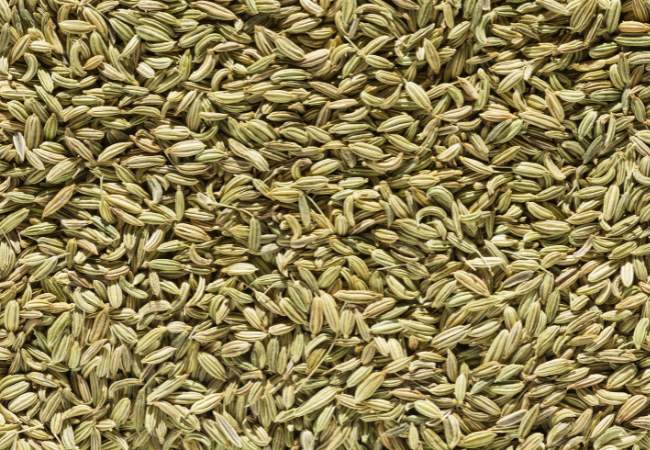
Fennel seeds have been used for centuries across Asia and the Mediterranean as a breath freshener and digestive aid. In India, they’re often served after meals for exactly this reason.
They have a mild liquorice-like flavour and are known for their ability to calm the digestive tract, reduce gas, and gently stimulate saliva. That’s a helpful combo when breath issues are linked to digestion.
How to use them:
Chew half a teaspoon of whole fennel seeds after meals. You can also brew them into a tea by lightly crushing the seeds and steeping them in hot water for 5 to 10 minutes.
How long does it last?
Usually around 1 to 2 hours of freshness, especially when the breath issue is digestion-related.
Extra tip:
Roasting the seeds gently in a pan brings out more flavour. Keep a small jar with you if you’re often on the go or eating out.
When to avoid:
Fennel seeds are generally safe in small amounts, but if you’re pregnant or on medication that affects hormones, speak to a specialist before using large quantities regularly.
4. Cloves: ideal if you need something strong and long-lasting for persistent breath issues
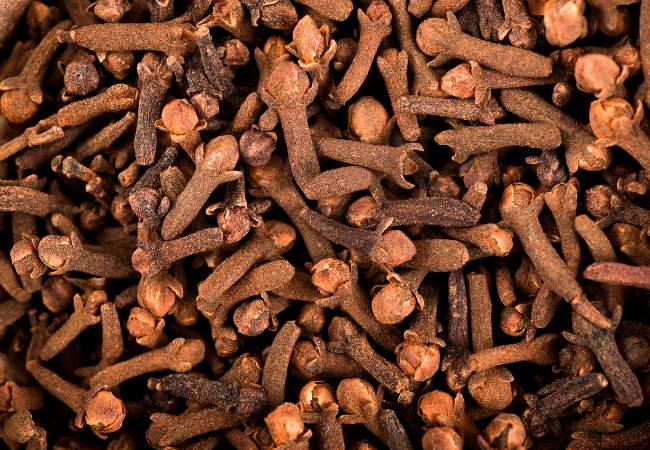
Cloves have a long history in herbal medicine and oral care. In traditional Chinese and Ayurvedic practices, they’ve been used for thousands of years to freshen breath, ease toothaches and support digestion.
They contain a compound called eugenol, which has powerful antimicrobial properties. This means cloves don’t just cover up odours—they help reduce the bacteria that cause them. They also stimulate saliva, which helps keep your mouth from drying out.
How to use them:
Suck on one whole clove after meals or when your breath feels off. Let it soften slightly before biting into it to release the flavour. You can also steep a few in hot water to make a simple clove tea.
How long does it last?
Anywhere from 2 to 4 hours, depending on your body and what you’ve eaten. The flavour is strong and can linger, so it tends to last longer than most herbs.
Extra tip:
Don’t use too many at once. Cloves are very intense, and one is usually enough. If chewing whole cloves feels too much, try the tea version for a gentler effect.
When to avoid:
Cloves are quite potent and may irritate sensitive mouths if overused. Avoid clove oil directly in the mouth unless guided by a professional.
5. Cardamom: perfect if you want breath that smells sweet and fresh without needing anything artificial
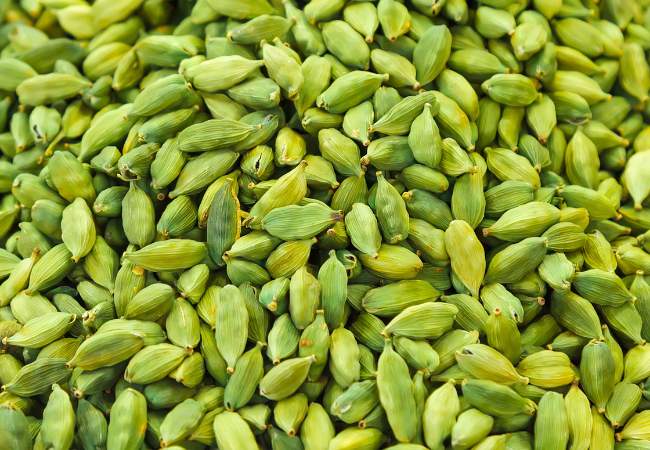
Cardamom has been used in Middle Eastern, Indian and Ayurvedic traditions for centuries as a natural breath sweetener. In many cultures, it’s still common to chew a pod after meals or before a conversation.
What makes cardamom stand out is its aromatic oils. These oils not only leave a pleasant scent in the mouth, but also help fight the bacteria that cause bad breath. Cardamom can also support digestion, which makes it especially helpful after meals.
How to use it:
Pop open a green cardamom pod and chew the seeds inside. You can also add crushed seeds to herbal teas, or brew them on their own with hot water.
How long does it last?
Usually around 1 to 2 hours. The scent is soft but noticeable, and it tends to feel cleaner than strong mints.
Extra tip:
Cardamom pairs beautifully with fennel if you want a gentle, digestive breath blend. You can also add it to warm oat milk or caffeine-free chai for a soothing option.
When to avoid:
Cardamom is generally very safe, but if you’re taking medication for gallstones or ulcers, it’s best to check first.
6. Cinnamon: helpful if your breath feels sour or you want to reduce mouth bacteria gently

Cinnamon has been used in both food and medicine for thousands of years. Ancient Egyptians used it for its scent and preserving qualities, while Traditional Chinese Medicine and Ayurveda praised it for warming the body and aiding digestion.
It works well for breath because of its antibacterial properties. Cinnamon helps reduce the bacteria in the mouth that can lead to odour, especially when breath has a sour or musty edge. It’s also warming and comforting, which can help after rich meals.
How to use it:
Simmer a small cinnamon stick in hot water for 10 minutes to make a gentle tea. You can also sprinkle a little cinnamon into herbal tea blends or homemade mouth rinses. Avoid chewing cinnamon powder directly—it can irritate the mouth.
How long does it last?
Around 1 to 2 hours of noticeable freshness, depending on how you take it.
Extra tip:
Use Ceylon cinnamon if you plan to drink it often. It’s milder and better suited for regular use compared to cassia cinnamon, which is stronger and higher in certain compounds.
When to avoid:
Stick to small amounts if you’re pregnant or taking blood thinners. Too much cinnamon, especially cassia, can be irritating or interfere with medication.
7. Thyme: a good choice if you want to target mouth bacteria and support gum health at the same time

Thyme has been valued for its cleansing properties since ancient times. The Greeks and Romans used it to freshen rooms and purify the air, while traditional herbalists have long relied on it for oral and respiratory health.
It’s especially helpful for breath because it’s naturally antibacterial. Thyme targets the kind of bacteria that build up in the mouth and along the gums. It also supports circulation in the tissues, which can be helpful if you’re dealing with inflamed or irritated gums.
How to use it:
Steep a teaspoon of dried thyme in hot water for about 10 minutes. Once cooled, you can use it as a gentle mouth rinse or drink it as a tea. If using fresh thyme, double the amount.
How long does it last?
The freshness tends to last 1 to 2 hours. If used regularly as a rinse, it may help reduce odour over time.
Extra tip:
Combine thyme with sage or mint for an even more effective herbal rinse. You can make a small batch and store it in the fridge for a couple of days.
When to avoid:
Avoid high doses if you’re pregnant or taking blood-thinning medication. Thyme tea in regular food-like amounts is generally safe.
8. Sage: great if your breath feels thick or sticky, or if you need a deeper clean after being unwell

Sage has been used since ancient times for everything from cooking to medicine. In traditional European herbalism, it was known as a cleansing herb for both the mouth and the mind. It’s still widely used in herbal mouthwashes and teas today.
It helps with breath by drying excess moisture in the mouth, reducing the kind of damp environment that odour-causing bacteria thrive in. Sage is also antimicrobial and gently astringent, which can help tone the tissues in the mouth and throat.
How to use it:
Steep one teaspoon of dried sage in hot water for 5 to 10 minutes. Once cooled, it makes a simple, effective mouth rinse. You can also drink it as a tea, especially if your breath worsens when you’re run-down.
How long does it last?
Often between 1 and 2 hours. If used as a rinse, it can help reduce odour over the course of the day.
Extra tip:
Try sage if you’ve had a cold or sore throat recently and your breath hasn’t bounced back. It’s also a good one to combine with thyme or rosemary.
When to avoid:
Avoid drinking sage tea daily for long periods. Short-term use is fine, but large amounts over time are not recommended, especially if you’re pregnant or breastfeeding.
9. Basil: ideal if your breath feels stale in the morning or if stress tends to dry out your mouth

Basil has long been used in traditional medicine for its calming and cleansing properties. In Ayurveda, holy basil (also called tulsi) is especially well known for supporting respiratory and oral health, as well as helping the body handle stress.
Basil helps freshen breath by reducing odour-causing bacteria and encouraging saliva flow. Its natural oils also give it a light, clean scent that lingers without being overpowering.
How to use it:
Chew a few fresh leaves slowly, especially in the morning or after a nap. You can also brew basil or tulsi tea by steeping the leaves in hot water for 5 to 7 minutes. Dried basil works, but fresh is more effective for breath.
How long does it last?
Usually 1 to 2 hours. When used regularly, it can help prevent morning breath from building up as strongly.
Extra tip:
Tulsi tea is especially useful if your breath feels off during stressful days. It’s calming, gentle and very easy to sip throughout the day.
When to avoid:
Basil is generally very safe in normal food or tea amounts. Tulsi may not be suitable during pregnancy or alongside blood-thinning medication, so check with a specialist if you’re unsure.
10. Dill: a gentle option if your breath feels off after eating or if you want something mild you can use daily
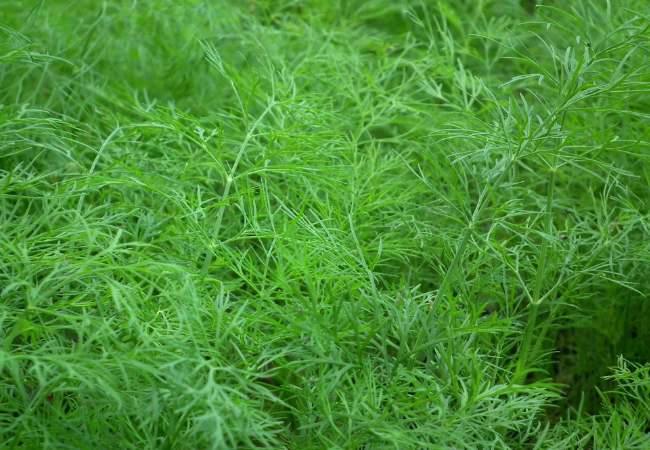
Dill has been used as a digestive and breath aid since ancient Egyptian and Roman times. In traditional herbal medicine, it’s been valued for calming the stomach and gently refreshing the mouth after meals.
It helps with breath by supporting digestion and leaving behind a light, clean aroma. Dill seeds in particular are known to neutralise odours in the mouth while also reducing gas, which can be linked to internal causes of bad breath.
How to use it:
Chew half a teaspoon of dill seeds slowly after meals. You can also steep the seeds or fresh dill leaves in hot water for a mild, soothing tea.
How long does it last?
Around 30 to 90 minutes. It’s subtle but effective, especially if used regularly after eating.
Extra tip:
Dill is a great choice if you’re sensitive to stronger herbs. It blends well with parsley or mint if you want a bit more strength without losing the gentleness.
When to avoid:
Dill is generally safe in food and tea amounts. Large quantities may not be suitable during pregnancy or if you’re allergic to other herbs in the same family.
Other natural habits that help with breath
Herbs are a great start, but there are a few other things you can do alongside them that can make a big difference. These small daily habits can support your mouth, digestion and overall freshness.
Stay hydrated
Dry mouth is one of the most common causes of bad breath. Sip water regularly throughout the day, especially after meals or if you’ve been talking a lot.
Clean your tongue
Bacteria build up on the tongue, especially towards the back. Use a tongue scraper or the back of your toothbrush to gently clean it once or twice a day.
Eat regularly
When your mouth is empty for too long, bacteria have more time to multiply. Skipping meals or fasting for long periods can make breath worse.
Support digestion
Slow or difficult digestion often shows up as bad breath. Herbal teas like fennel, peppermint or ginger can help things move more smoothly.
Avoid too much sugar or dairy
These can feed the wrong kind of bacteria and contribute to that sour, off smell.
Try probiotic foods
A healthy gut helps balance everything. Fermented plant-based options like sauerkraut, kimchi or coconut yoghurt can be a gentle way to bring in good bacteria.
You don’t need to do all of this at once. Just start with one or two things and see how your body responds.
Final thoughts
Bad breath doesn’t mean something is wrong with you. It doesn’t define who you are. It’s usually just a sign that your body needs a little extra support.
Mints and mouthwashes might work for a few minutes, but they rarely get to the root of the problem. Herbs, on the other hand, can offer gentle, natural help—without drying out your mouth or upsetting the balance inside it.
You don’t need to try all ten. Start with one or two that feel right for your routine. Notice what works and build from there.
Whether it’s parsley after meals, fennel seeds in your bag, or a mint tea in the afternoon, small habits can make a big difference.
And if you’ve ever felt embarrassed or alone with this, you’re not. So many people deal with it quietly. You’re doing something kind for yourself by looking for real solutions.
Your breath deserves to feel fresh. You deserve to feel comfortable in your own skin.
Patri xx

